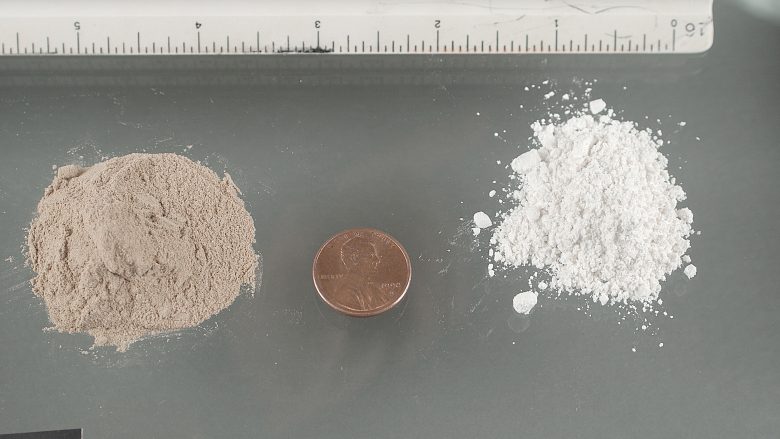What Does It Take To Keep Three Dominican Drug Lords Out of Massachusetts and Rhode Island?
By Evan Lips | April 19, 2017, 22:32 EDT

BOSTON — The notorious Valdez brothers, alleged to have operated one of the largest heroin rings in New England, have managed to avoid permanent deportation despite being tried and convicted for a litany of criminal offenses that date back to at least 1989.
Federal officials bagged the Dominican brothers Claudio, Hector, and Juan Valdez last week in a highly publicized bust, along with 12 other individuals identified as conspirators scattered across Massachusetts, Rhode Island, and Connecticut, in connection with the Federal Bureau of Investigation’s ongoing Operation Triple Play.
“Substantial quantities of heroin and cocaine,” according to a Department of Justice press release, had been flowing “from Mexico via the southwest border of the United States directly into Rhode Island.”
The role that fraudulently-assumed Puerto Rican identities have played in perpetuating the drug ring appears to be significant, according to newly-available government documents.
A recently unsealed FBI affidavit filed in U.S. District Court in Boston sheds more light on the techniques used by the brothers — and others charged in connection with the alleged drug ring — to remain in the United States illegally. The report, compiled by FBI Special Agent Colin Woods, documents the schemes that the brothers and others used in order to assume a revolving rolodex of assumed identities, an operation that allegedly involved fraudulently-obtained driver’s licenses and the theft of Puerto Rican identities.
The FBI recognized the middle brother, Hector Valdez, 47, as one of the leaders of the family drug ring. Hector Valdez, a Dominican national living illegally in Woonsocket, Rhode Island, had allegedly gone by seven different aliases. Woods’s affidavit notes that he is known to immigration officials and had been deported “on or about June 24, 2009.”
“Hector Valdez has fraudulently obtained at least one RI driver’s license and one MA driver’s license under assumed names,” Woods wrote.
His Massachusetts criminal record dates back to at least 1989, beginning with a drug trafficking charge out of Boston. Hector Valdez was charged with another four drug-related offenses between 1989 and 2009, the year of his deportation.
Claudio Valdez, 44, had been deported in 2013 only to return illegally to Rhode Island. Like his brother Hector, Claudio allegedly committed fraud to obtain at least one driver’s license in both Rhode Island and Massachusetts. Records show that his first known arrest in the United States occurred in New York in May 2000, where he was charged with drug possession and resisting arrest.
The oldest brother, Juan Valdez, 50, allegedly went by at least three different aliases, and is known as “Canita,” aka “Cabezon.”
Woods noted that Juan Valdez fraudulently obtained at least one Rhode Island driver’s license.
It was his Milton address that Woods named in his application for a search warrant, which eventually led to the arrests of the brothers and 12 other alleged conspirators.
Juan Valdez, according to Woods, had been deported four different times, in 1994, 1997, 2004, and 2011.
His “girlfriend or wife,” according to Woods, is Sandra Rodriguez, a 38-year-old Dominican national living in the United States illegally.
“I have determined that the identity of the license she uses is that of a Puerto Rican woman,” Woods noted in his affidavit. “I have obtained what appears to be a valid Puerto Rican driver’s license for an individual with the same name, date of birth, and social security number.
“However, the license depicts a different person.”
Woods wrote that he believes her true identity to be Alexandra Garcia Montero, 38.
Despite her illegal immigrant status, three different arrests in Massachusetts involving Rodriguez and drug-related offenses racked up between February 2009 and December 2010 did not bring deportation orders.
According to Woods, the fraudulent Puerto Rican identity connection surfaced again in the matter of Orlando Robles, a 32-year-old Dominican national living in Peabody who allegedly acted as a drug-runner for the brothers.
Woods notes that Robles likely illegally assumed his name and managed to obtain a Massachusetts driver’s license “using the alias of a Puerto Rican man named Orlando Robles.”
Another Dominican national Woods identified as a top customer of the brothers’ drug business happens to be a man named Carlos Delgado, 37. According to Woods, Delgado, an alleged supplier himself, obtained a Massachusetts driver’s license by “using the alias of a Puerto Rican-born male named Jesus Delgado-Sierra.”
The rest of Woods’s affidavit outlines the legwork needed to push the case against the brothers forward, a saga that included numerous wiretap applications, street surveillance, and the deciphering of various drug-related code words.
Woods noted that he had a translator assist him in transcribing the calls, as the brothers communicated strictly in Spanish. Woods later determined that the chief drug suppliers were operating out of the Dominican Republic and Mexico as the “Maestro” and the “Doctor,” respectively. The brothers used a series of “stash” houses scattered across Rhode Island and Massachusetts.
There is no mention in the 68-page affidavit that describes how the brothers managed to re-enter the United States illegally following their deportations.
Read a copy of the affidavit:
2017-04-11 Valdez Bros Search Warrant FBI by Evan on Scribd











